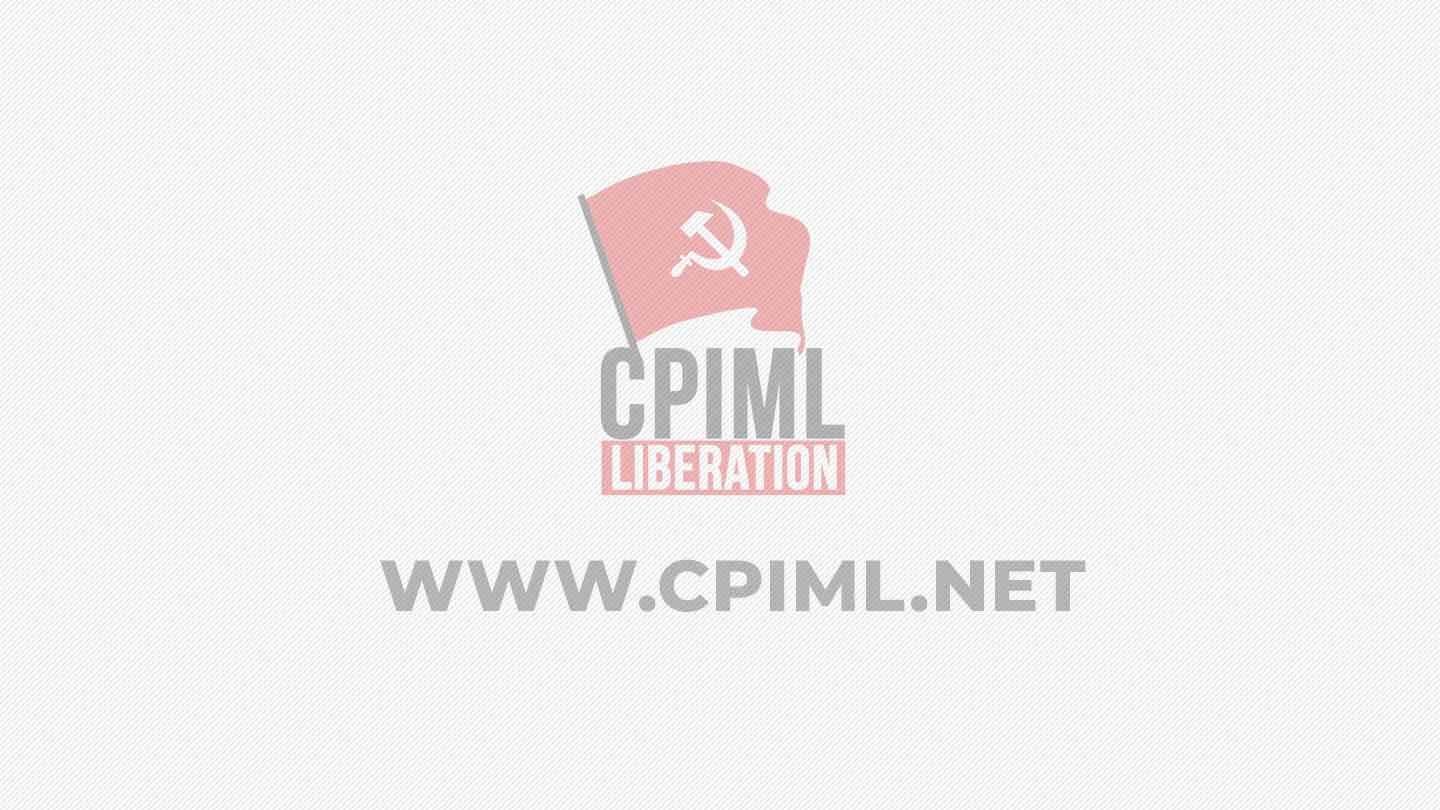One Nation One Election Proposal Undermines the Basic Spirit of Democracy and Federalism : CPI(ML)

CPI(ML) Liberation has submitted a written submission to the ‘One Nation, One Election’ High Level Committee (HLC) on January 8th, 2024 in response to the public notice regarding simultaneous elections issued by the HLC. Terming the ‘One Nation, One Election’ (ONOE) / simultaneous elections proposal as undemocratic, CPIML said that this pet idea of the BJP undermines the basic spirit of democracy and federalism that constitutes the lifeblood of the Constitution. Today, in the name of ‘One Nation, One Election’ the BJP wants to set the political clock back and enforce a regimentation of the polity through constitutional amendments.
Earlier in July, 2023, the CPI(ML) Liberation, in response to the letter from the Law Commission on ONOE, rejected the very idea to be undemocratic and unconstitutional.
Attempt to Create Single Party Domination
The fact that the BJP today has acquired the kind of electoral dominance that the Congress used to enjoy fifty years ago cannot be the basis for amending the Constitution and turning the clock back. The BJP, of course, openly harbours the ambition of becoming India’s ruling party, in fact the only party, for the next fifty years. But, the Constitution must not be amended to suit the ruling party’s political ambitions.
Democracy Can’t be Subordinated to Logistical/ Financial Convenience
Assembly and Parliament elections have their own specific contexts as do the panchayat and municipal elections. Clubbing elections together for logistical considerations will mean stripping Assembly elections of their autonomous domain and making them subordinated to the central context. The assumption that holding simultaneous elections would make for logistical convenience and financial savings is not backed by any credible study or analysis of election expenses or logistical arrangements. Furthermore, as per the Law Commission’s 2018 draft report on simultaneous elections about 3586 crores was the cost incurred by the ECI on the 2014 elections (para 2.10). To put this in perspective, since the BJP came to power at the Centre in 2014, the Union government has spent ₹3,260.79 crore on advertising in electronic media and ₹3,230.77 crore on advertising in print media. If money is truly to be saved, the scope clearly lies elsewhere. Expenditure cannot be made a prime consideration in pursuing the core principles of democracy.
Furthermore, in the letter to HLC, CPI(ML) has stated that the Law Commission report, which has been one of the primary document for the committee for the proposal, makes a rather disingenuous argument around MCC to seek justification for its proposal for simultaneous elections. This is rife with blatant contradictions. MCC does not interrupt or slow down development; it only places certain restrictions on the government to stop it from influencing the voters with announcements of new projects and policies. Elections enable the people to have a say and express their opinion about a government or its so-called development activities. Portrayal of MCC as an impediment to development militates against the centrality of the people in a democracy by creating an artificial contradiction between governance, and, the people’s right to choose their representatives and express their opinion about any government and its performance or so-called development agenda.
Violates Constitutional Morality and Basic Structure of Constitution
The exercise to push constitutional amendments for ONOE is based on erroneous legal interpretation of the doctrine of basic structure with the intention of limiting its scope to make a laboured and untenable argument that the rewriting of the constitution does not amount to a violation of its basic structure.
Transformative constitutionalism in a democracy, would mandate that in addition to the basic structure test, any constitutional amendment must also be tested against the ideals of constitutional morality, constitutional governance, and constitutional objectivity. However, the very concept of “constitutional morality” is entirely absent in the entire draft report despite the proposal for wide-ranging constitutional amendments that would effectively replace the existing system of parliamentary democracy.
In a bid to justify the wide-ranging amendments to the Constitution to facilitate simultaneous elections, the entire ONOE proposal attempts to play down the right to vote, and the right to elect in Indian jurisprudence. Parliamentary democracy, multi-party system and free and fair elections are all part of the basic structure of the Constitution. Any constitutional amendment to ensure mandatory simultaneous holding of elections to Parliament and State Assemblies will strike at the basic structure of the Constitution and undermine the basic spirit of democracy and federalism that constitutes the lifeblood of the Constitution.
We therefore appeal to the High Level Commission to desist from pursuing this unwarranted and potentially disastrous idea.
Charu Bhawan, U-90, Shakarpur, Delhi 110092
Phone: +91-11-42785864 | +91 9717274961 E-mail: info@cpiml.org

